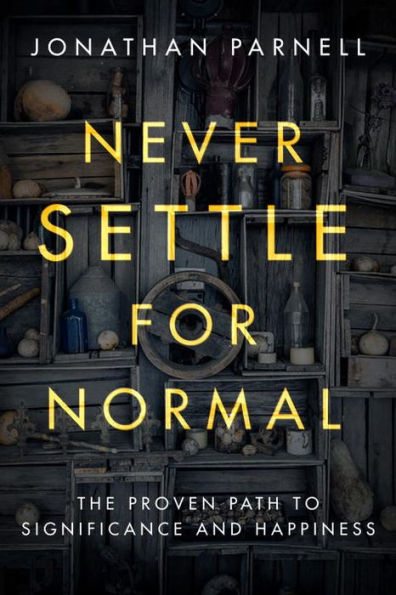Significance? Happiness? We all want these things. Normal life doesn’t seem like enough for us, but we’re not sure where to get more. Is this it? we ask. Is this all there is? Something has to be missing. Surely there is something more.
Jonathan Parnell—lead pastor of Cities Church in Minneapolis-St. Paul—answers these questions in his new book, Never Settle for Normal: The Proven Path to Significance and Happiness. It’s an apologetic book written primarily for non-Christians looking for meaning, but it also spoke to me, a Christian who wonders, Why do I have days where insecurity rages, contentment is elusive, and joy seems so hard to grasp?
To find meaning, Never Settle for Normal goes through the Bible’s storyline, which Parnell describes as “a narrative full of brokenness and beauty, despair and hope, darkness and light” (8). He aims for us to encounter each doctrine as “a milestone along a journey, leading us to the significance and happiness for which we were made” (9). These goals—significance and happiness—are the focus of the whole book, and Parnell connects each doctrine back to them.

Never Settle for Normal: The Proven Path to Significance and Happiness
Jonathan Parnell
Never Settle for Normal: The Proven Path to Significance and Happiness
Jonathan Parnell
He interacts with common objections to Christianity and unfolds Scripture to show how our deepest longings point us back to the One who created us for his glory. This God became a human to redeem and fulfill the yearnings we wrongly expect the world to satisfy.
Theology for Skeptics and Believers
Parnell communicates rich, robust theology in everyday language. He presents Scripture’s meaning clearly so people can grasp it and take it to heart. I learned how to better teach gospel truths in ways that resonate with unbelievers.
Parnell explains the passive and active obedience of Christ and defines words like atonement, propitiation, and penal substitution—especially for those with potentially zero Bible or theological background. Christians would do well to learn from his example; we need to know how to talk about biblical truth in a way that’s both accurate and also accessible.
I learned not only how to teach but also from the teaching itself, as Parnell shed fresh light on theology I’ve believed for years. For example, he describes God as “a happy Father who loves,” and Jesus as the one who “possesses and expresses who God is . . . so perfectly that he himself could be called the glory of God” (24, 63). His winsome language helped me better understand and love my King.
Too Concise?
At 124 pages, the book is a non-threatening length for unbelievers, but I wish it were longer for the sake of closure. Parnell spends two-thirds of the book on the doctrines of creation, fall, and redemption through Christ, and about one-third on what happens after someone embraces Christ. The final third left me wanting more clarity, application, and, most importantly, a further invitation for the seeking reader to come to Christ in faith.
Parnell’s chapter on the resurrection in the middle of the book beautifully calls readers to believe in Jesus, but he doesn’t repeat the call at the end, an opportune place for another invitation. Without a final call, the ending felt a bit abrupt. A seeker might be left wondering what the next step is.
Stock Up and Read
Never Settle for Normal is a great help to anyone seeking more than this life offers. I’d encourage believers to read this book and take careful note of the clear way Parnell teaches biblical truth. Then buy a few copies to give away to skeptical or curious neighbors and friends.
You’ll be prepared to answer those looking for happiness in all the wrong places (including you), and you’ll be able to give them a guide to the Bible that points their longing souls to the only thing that can truly satisfy.




































